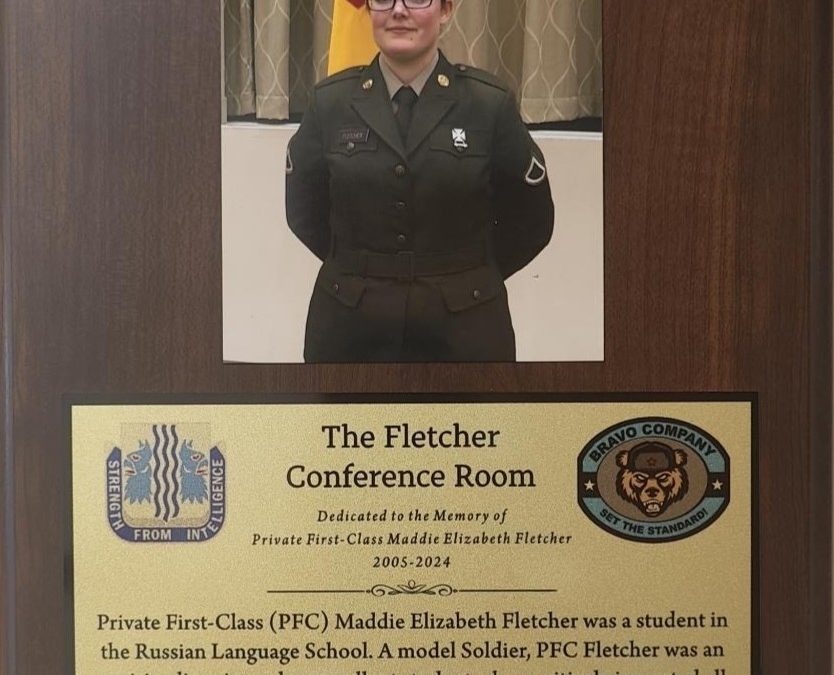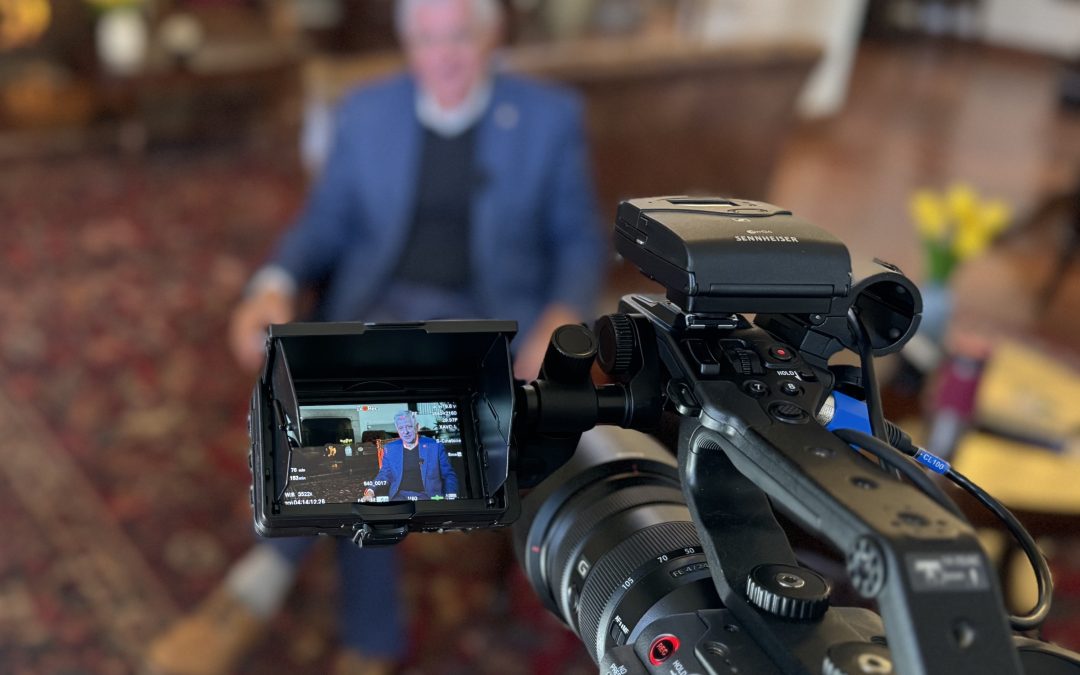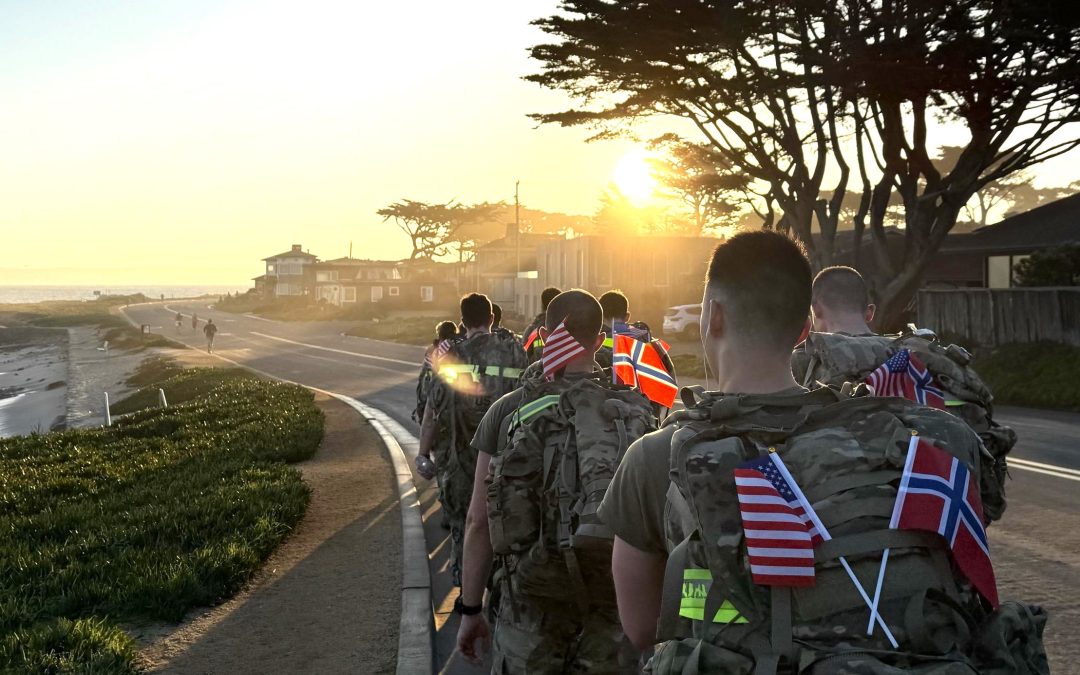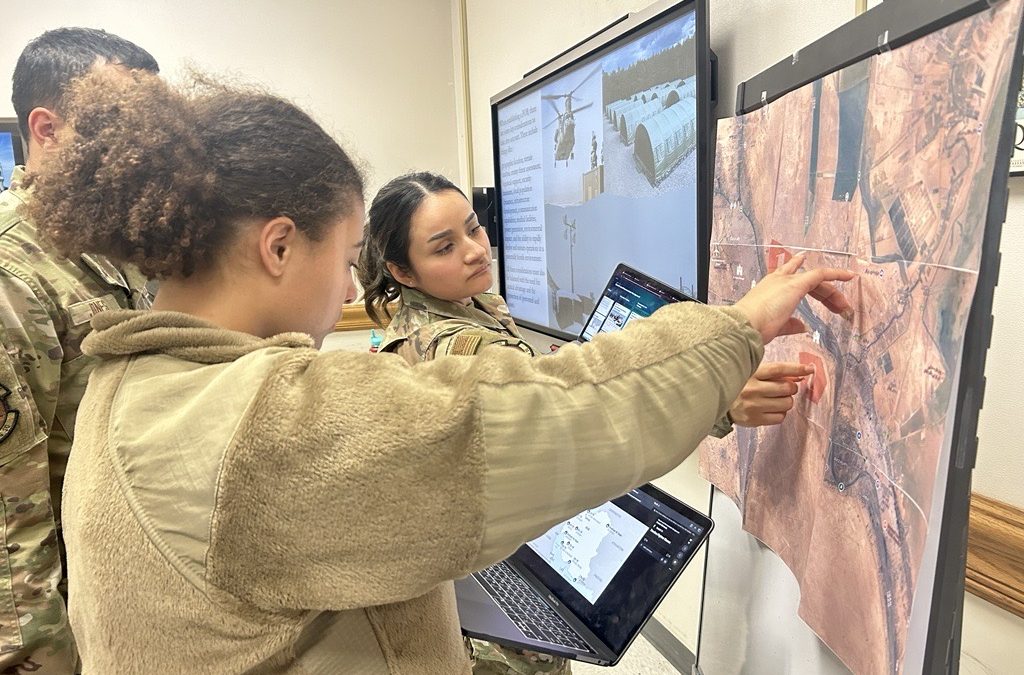Courtesy Story
Center for Information Warfare Training

About 120 Sailors from the U.S. Navy Information Warfare Training Command Monterey were given a behind-the-scenes tour of an EP-3E Aries II multi-intelligence reconnaissance aircraft from Naval Air Station Whidbey Island, Washington, March 21, at the Monterey Jet Center. The Aries II is the Navy’s only land-based reconnaissance aircraft and can carry a crew of 24 that includes up to 4 crypto-linguists. (U.S. Army photo by Steven L. Shepard/Released)
MONTEREY, Calif. – Students from Information Warfare Training Command (IWTC) Monterey visited Fleet Air Reconnaissance Squadron (VQ 1), March 21.
The Whidbey Island-based squadron visited the Monterey Jet Center and provided a static display of an EP-3E Aries II reconnaissance aircraft for IWTC Monterey students attending linguistics courses at the Defense Language Institute Foreign Language Center (DLIFLC).
Cmdr. Andy Newsome, commanding officer of IWTC Monterey, requested the visit to provide an operational context for the language training the Sailors receive at DLIFLC.
“Many of our newest Sailors are unsure of what it means to conduct information warfare in the fleet,” said Newsome. “We feel strongly that by giving our Sailors a glimpse of what their shipmates are doing, we can help increase their motivation to excel in language learning.”
More than 100 students and staff members visited the static display and interacted with the aircrew. Seaman Apprentice Zachary Bassett stated that he was inspired by the presence of the other linguists there.

About 120 Sailors from the U.S. Navy Information Warfare Training Command Monterey were given a behind-the-scenes tour of an EP-3E Aries II multi-intelligence reconnaissance aircraft from Naval Air Station Whidbey Island, Washington, March 21, at the Monterey Jet Center. The Aries II is the Navy’s only land-based reconnaissance aircraft and can carry a crew of 24 that includes up to 4 crypto-linguists. (U.S. Army photo by Steven L. Shepard/Released)
“I felt that if they can do it, I can do it too,” said Bassett. “The tour made the idea of going to aircrew feel like more than this mythical legend that your recruiter tells you about and turned it into a tangible goal.”
The EP-3E Aries II is a land-based multi-intelligence reconnaissance aircraft based on the P-3 Orion airframe. The aircraft provides fleet and theater commanders worldwide with near real-time tactical signals intelligence and full motion video intelligence.
“This is a great experience for the language students,” said Chief Warrant Officer 4 Vinny Cassano. “I spent my entire enlisted career flying EP-3s. It means a lot to me seeing the next generation of Navy airborne linguists learn about the safety gear used and the hours of hard work dedicated towards different duties on board.”
IWTC Monterey, as part of the Center for Information Warfare Training, provides a continuum of foreign language training to Navy personnel, which prepares them to conduct information warfare across the full spectrum of military operations.

About 120 Sailors from the U.S. Navy Information Warfare Training Command Monterey were given a behind-the-scenes tour of an EP-3E Aries II multi-intelligence reconnaissance aircraft from Naval Air Station Whidbey Island, Washington, March 21, at the Monterey Jet Center. The Aries II is the Navy’s only land-based reconnaissance aircraft and can carry a crew of 24 that includes up to 4 crypto-linguists. (U.S. Army photo by Steven L. Shepard/Released)
For more news from Center for Information Warfare Training enterprise, visit http://www.navy.mil/local/cid/, http://www.netc.navy.mil/centers/ciwt/, http://www.facebook.com/NavyCIWT, or http://www.twitter.com/NavyCIWT.
DLIFLC provides resident instruction in 17 languages at the Presidio of Monterey, California, with the capacity to instruct another 65 languages in Washington, D.C. The Institute has graduated more than 220,000 linguists since 1941.
In addition, multiple language training detachments exists at sites in the U.S., Europe, Hawaii and Korea, spanning all the U.S. geographic combatant commands in support of the total force.




